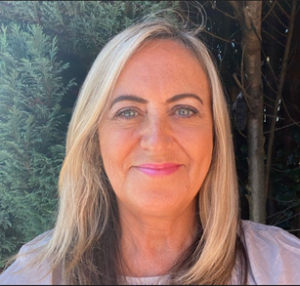 What is your role?
What is your role?
I have worked as an Organisational Developer at the University of Liverpool since 2013.
When did you join the SDF?
I have been an active member of the NW SDF Region community since starting in my previous position as Staff Development Manager at the University of Bolton and am now even more bought into the community being the Co-Chair of the NW Regional group.
Why did you join the SDF?
I joined the SDF community as I had transitioned from an academic role at the University of Salford and was like a fish out of water coming into a professional services role. I had been working autonomously designing and teaching HR and OD related modules on a range of programmes for the previous 15 years and was somewhat removed from the complexities involved with managing and navigating in a HE institution.
The SDF community were my go to resource during my induction into the role and they were always willing to help me make sense of the organisational context and the wider environment in which we work. I quickly discovered that, although we are in different institutions, we all have a similar agenda and there’s absolutely no point in reinventing the wheel. There are always several supportive colleagues to call on for support that are attempting to implement a similar initiative.
What’s the best thing about the SDF?
The best thing about the SDF is the amazing people I have in my network. In fact, it’s one of the reasons I remain in HE. I can’t imagine that networks could be as supportive in other sectors. We may all be working for organisations with competing agendas, but, through the SDF, I believe we have formed our own macro learning organisation beyond the boundaries of our own institutions.
What are you working on?
I am currently juggling several exciting projects. I run a university wide Managers Community of Practice and this group has become a valuable source of feedback for university initiatives especially during the pandemic. The community, via monthly meetings and a TEAMS channel, has been able to engage in open discussion, share challenges and offer support to each other. The recent focus, via a set of hybrid working principles introduced by the university, has been to support leaders and managers to make the transition to hybrid working. To further support the embedding of these principles I have set up a new community of practice specifically for managers of hybrid teams. Another project that contributes to the university’s continued growth of a coaching culture, involves launching an internally delivered ILM Level 5 Coaching programme this year aimed at senior managers. This follows the success of embedding coaching skills development into all our leadership programmes.
Externally, I am currently organising the SDF Festival to be held in November this year and am really thrilled to be working with a number of coaches from the SDF community and beyond who have volunteered their coaching expertise to offer coaching conversations to festival attendees. I am also leading a North West Coaches Network which enables me to collaborate with a fantastic group of like minded colleagues on everything coaching related. www.nwhecoachesnetwork.co.uk Running the North West HE Action Learning Programme for women also keeps me busy. This is supported by colleagues from the NW SDF community and programme alumni. We were proud to win a SDF Developing Excellent Practice Award in 2017 for this programme and we have been able to share the experience and learning with many colleagues across the UK. www.highereducationactionlearning.co.uk
What is a typical day?
A typical day now is very different from 18 months ago. I now work predominantly at home which means I have a fab work life blend (as I like to call it). I usually plan my day whilst sitting in the hot tub drinking coffee. I then take 5 steps to my workstation where a variety of interactions take place throughout the day including: coaching, consulting and delivery. I am not a lover of meetings, especially those that don’t involve an outcome, so I keep those to a minimum (or very short at least). Breaks and lunch are in the garden (whenever possible) or a walk around the lovely village where I live (sometimes with my husband if we are lucky enough to be able to take a break at the same time). My day doesn’t have a start and end time anymore which helps my wellbeing. ☺
An event that altered the course of your life and career?
Two events spring to mind!
The first was when I was given the opportunity to undertake a course of my choice as a result of redundancy. I decided to do a teaching certificate and didn’t realise at the time the opportunities this would present – teaching in a college of further education, then becoming a university lecturer and finally securing work as an independent consultant offering services to private and public educational organisations.
When I was nominated (not asked) to do something that took me completely out of my comfort zone by my manager at the time who was Dean of the Business School at the University of Bolton. The task was to design and deliver a leadership programme for heads of NGOs in Malawi. I had no idea about the African political system so spent a whole summer in the garden (that’s where I do my best thinking) researching and designing a bespoke programme for delivery in person in late Autumn. I learned more that year about leadership than I ever had before or since. I concluded that good leadership is the same regardless of specialism or where you are in the world and that the role of the facilitator is to help the leader to align good leadership theory to their context. This has led to a number of related successful projects so I am forever grateful that someone believed in me!
Which person has influenced you the most?
My mother without a doubt, she was a very strong, confident woman who told me that I could do anything if I was willing to put the effort in. She led by example and gained lifelong satisfaction from helping others.
Work life balance?
Some of the things that provide me with a good work life blend are my hot tub, walking, visiting independent coffee shops and cycling (on the flat). I also have a holiday home where I stay and work at least a couple of times a month.
Something about me that might surprise people?
My first boyfriend was Dr. Who! I’m not sure if he remembers me now he is famous but we used to go to the disco on the bus together (he didn’t have a tardis then).
Who would you invite to a party?
I would invite Richard Branson so I could talk to him about all things business. I would also invite London Grammar so they could play cool tunes in the background while we chatted. And I would also invite Meredith Belbin, who is still working at 95, Steven Covey, Rob Goffee and Daniel Pink as I love their work
What would your superpower be?
My superpower would be to make all senior leaders in organisations realise that if they implement good OD strategies they would recruit and retain the best people.
What is your favourite food?
For breakfast, fully loaded porridge including fruit, chocolate, Greek yoghurt, etc etc. For evening meal, tapas all the way.
What was your worst job?
I have enjoyed every job I’ve had so it’s difficult to answer this one. Unfortunately, I can’t say I’ve always enjoyed how I have been managed ☹
How would you improve your quality of life?
My ambition is to have a small house in France that I can escape to when I fancy a change. I would also love to spend more time with my family, especially my son who is busy growing a successful business and my daughter who Is studying to be a pharmacist.
What’s coming next?
A house in France where I can enjoy all the extra leave I have started to purchase!
